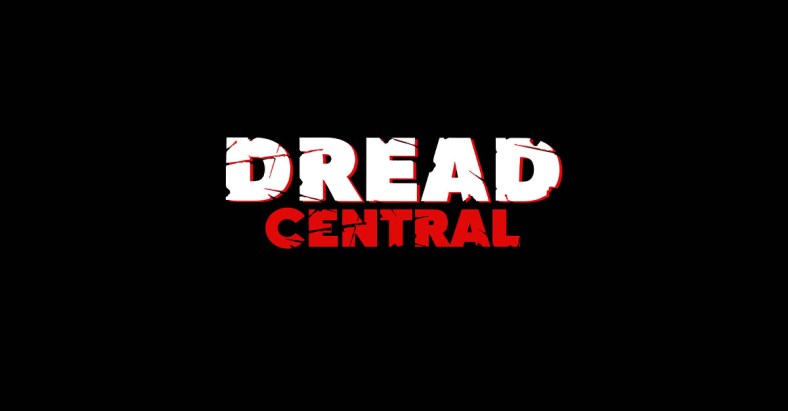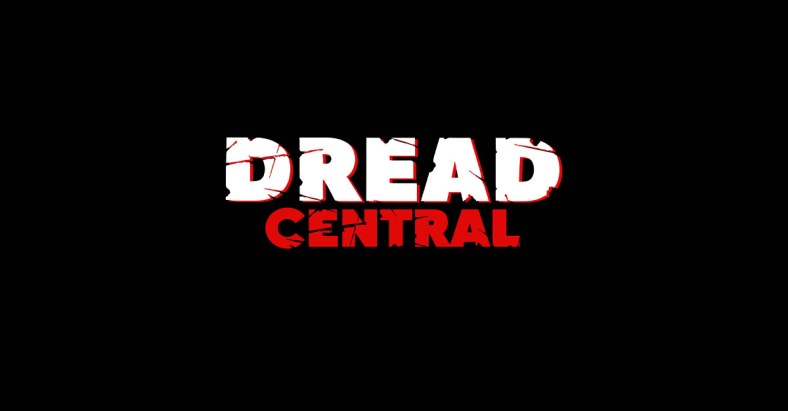Check Out Our Exclusive Interview with INNER GHOSTS Writer/Director Paulo Leite
The debut feature of Paulo Leite, Inner Ghosts pits a veteran medium with the deadly undead. The film is now available on DVD and Digital. Give the trailer a spin embedded at the top of the article and read the synopsis below.
Synopsis:
If ghosts can think and remember who they are, then the physical brain is not the only place where we store our inner selves. Helen (Celia Williams) is asked to train two young women into the art of communicating with the dead. But Helen’s days as a medium are long gone. In fact, she gave up that life 15 years ago when she lost her daughter. Today Helen is a different woman dedicated to her career in brain research. Things start to change when a visit from the other side offers her the design of a device that can do amazing things. But to everything there is a risk.
Inner Ghosts stars Celia Williams, Elizabeth Bochmann, and Iris Cayatte.
Today, Dread Central is pleased to present an exclusive interview with Leite. Read our conversation below.

Dread Central: Where do you hail from, sir?
Paulo Leite: I am Brazilian, but I live between Portugal and North Carolina.
DC: Did you grow up with supportive parents – ones who encouraged your journey into filmmaking?
PL: I did. Both my parents were always very supportive. My dad used to travel a lot when I was a kid (in the good old VHS days). I used to give him lists of horror films I wanted to see and he used bring them home. My mom hated horror films but was always supportive.

DC: Do you remember your first scary movie?
PL: Actually, it was a TV spot for a horror film. It was in 1980, when I was a small kid. The TV spot for The Shining came on TV and I knew I was “in some kind of love” with people wielding axes.
DC: How did it affect you?
PL: It affected me a lot because for the first time, I said to myself “I must watch that film”. I was only five or six years old and in no way I could watch it in theatres. However, the love for the genre was there. I had watched old Hammer films before with my dad (and I loved them), but the images on that TV spot were so strong, it changed me.
DC: And growing up, especially in Brazil, what were you watching?
PL: I was privileged for having grown up through the 80’s. Back in those days, the VHS rental business was unregulated. This means every film ever made was available and cheap. There was no legal distribution and every rental shop would simply import their videotapes from the US and Europe. Because of that, Brazilian VCRs were modified to handle Pal, NTSC, and other systems. Any film from any country was available. So, I watched everything: from Friday the 13th to Mothra.

DC: Did any of those films or TV series influence Inner Ghosts?
PL: Yes, I love old British horror. Hammer House of Horror was a big influence as well as the work of Nigel Kneale. British horror was so elegant, so rich in atmosphere. They always gave you more than expected.
DC: How long ago did the journey begin for you on the movie?
PL: I wrote five horror films I wanted to make myself (previously, I had sold a few projects to Portuguese producers, so I was eager to make something on my own). Two of those five scripts were selected for co-production markets and had great feedback. However, although they were not very expensive, the fact that I had never directed anything before made the financing very reluctant. So, I decided to write something I could produce with very little money – money I could get. So, Inner Ghosts is the sixth script I wrote for myself.
DC: Take long to write the script?
PL: In total, I spent 5 months working on it.
DC: Was it always the plan to shoot it in English?
PL: Yes, I wanted to have fun and make something closer to some of the films I love. So, why not have British actors?
DC: Was it important to you that this movie has as much story as it did style – because those scares are backed up by some really solid drama?
PL: I did a lot of research for the film because I wanted to push forward some of my own theories about what’s on the other side. I read a lot about ghosts and how they could be possible. I feel there is so much scary stuff that never make it into horror films! That’s why I came up with the 3D printers part and the relationship between the training that goes on this side and the other side. I like putting on scripts stuff I have never seen.

DC: It’s important that the audience cares for these characters isn’t it?
PL: Yes. Characters are 70% of it. I enjoy spending time with them. And because of that, I enjoy spending time with actors. It is a beautiful feeling to be with the actors who portray your characters. It is strange and delicious. You are meeting characters you created; but because they are played by actors (real people) they always end up surprising you. I had no idea it was so fulfilling to work characters and actors.
DC: What’s a common mistake some filmmakers tend to make in producing horror movies?
PL: I made so many mistakes that I doubt we have enough pages for this interview (laughs) I you want to go over them. The beautiful part is that we learn from mistakes and I have learned precious lessons making this film. However, I would say that the biggest mistake one can make is not to prepare enough. Preparation is fundamental. If you are working with little money, you have to double your efforts to do extra preparation, which sometimes is impossible, since preparation also costs money. So, you have to decide which risks you will take. These are conversations filmmakers have 300 times a day inside themselves. There are no perfect answers. In the end, you do the best you can with the little you have – and you cannot stop. You have to make the film. You have to tell that story or life does not make sense. It is a bloody battle and you have to face it. You must have a suicidal desire (laughs) to grab the bull by the horns. The bull ends up being a t-rex, but you love it!
DC: Talk about the sound here. How important was it to you?
PL: It was very important. We actually spent more money on microphones than on the camera. I wanted to record the best sound possible because I knew I would not have a lot of money for post. Lisbon (where the film was shot) is a noisy city. Because of that, I decided to shoot at night and make sure the sound team had perfect conditions. It paid off because 98% of all dialogue came flawless. We only spent one day in a studio re-recording specific stuff. The final sequence was a big challenge during the post. There are so many things happening that it took a lot of time to get the sound right.
DC: And who was it that you had composing?
PL: I invited Miguel Cordeiro, who is a young music composer. He understood exactly what I was looking for and helped a lot on many things.
DC: What makes the story, scary, in your opinion?
PL: Things become scary once you consider they can happen. At some point, we all look into our own lives – personal tragedies, disappointments and difficulties – and ask ourselves: is there someone or something observing us, planning against us, making bad things happen? How do you know?
DC: Are you working on anything new in the horror genre?
PL: DAMN, YES! I am working on a few concepts I’ve never seen and I think horror audiences will love them. I am already showing those scripts to the right financers. We should never forget that horror has to be fun. I want other people to feel the way I felt watching that TV spot in 1980. I want people to say “I must watch this film!”

